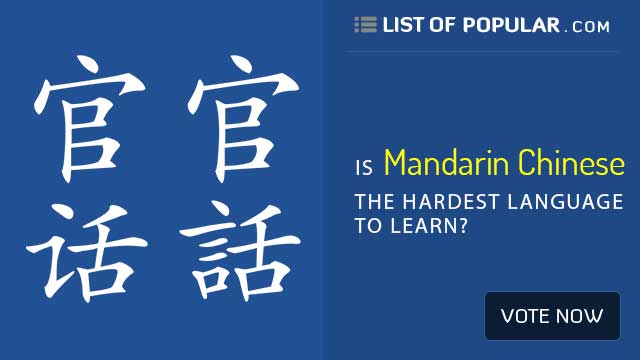Is Mandarin Chinese the hardest language to learn?
"Is Mandarin Chinese the hardest language to learn?" is a question that often sparks debate among language enthusiasts and learners worldwide. Mandarin Chinese, renowned for its intricate writing system, tonal nature, and complex grammar, presents significant challenges to non-native speakers, particularly those coming from a Western linguistic background. However, labeling it as the absolute hardest language to learn requires nuanced consideration.
One of the most daunting aspects of Mandarin Chinese for learners is its writing system, which consists of thousands of characters, each representing a distinct word or concept. Unlike alphabetic writing systems, such as English, where letters combine to form words, Chinese characters require memorization of strokes and radicals, making initial literacy acquisition a formidable task. This aspect alone can deter many learners from embarking on their journey with Mandarin.
Another unique feature of Mandarin Chinese is its tonal nature. Mandarin utilizes four distinct tones, each altering the meaning of a word. Mastering these tonal variations poses a significant challenge for learners, especially those whose native languages are non-tonal. Mispronouncing tones can lead to misunderstandings or completely change the intended meaning of a word, adding an extra layer of complexity to language acquisition.
Additionally, Mandarin Chinese possesses a grammatical structure that differs greatly from English. While English relies heavily on word order and auxiliary verbs to convey meaning, Mandarin employs grammatical particles, measure words, and aspect markers, among other linguistic features. Navigating these grammatical intricacies requires learners to adopt a new mindset and approach to language learning.
Despite these challenges, labeling Mandarin Chinese as the hardest language to learn oversimplifies the complexity of language acquisition. The difficulty of learning a language is subjective and depends on various factors, including the learner's linguistic background, exposure to the language, motivation, and learning strategies.
For example, speakers of tonal languages like Vietnamese or Thai may find Mandarin Chinese tonal system more intuitive compared to speakers of non-tonal languages. Similarly, individuals who are passionate about Chinese culture or have access to immersive language-learning environments may overcome obstacles more readily than those without such resources.
Moreover, other languages possess their own unique challenges that rival or even surpass those of Mandarin Chinese. Languages like Arabic with its intricate morphology and writing system, Japanese with its complex honorifics and writing systems, or Hungarian with its agglutinative grammar are often cited as equally or more challenging for learners.
In conclusion, while Mandarin Chinese presents formidable hurdles for learners, labeling it as the hardest language to learn requires careful consideration of various factors. Ultimately, the perceived difficulty of a language is subjective and varies from person to person. Instead of focusing solely on difficulty, embracing the journey of language learning as a rewarding and enriching experience can empower learners to overcome challenges and achieve proficiency in Mandarin Chinese or any other language they choose to pursue.

